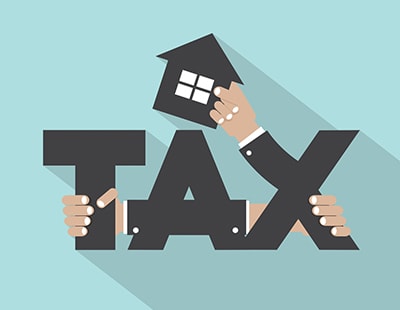
A property finance company says increased taxes and regulations for the private rental sector mean that energy efficiency improvements to raise EPC ratings are often put on the back burner.
“It’s currently a legal requirement that rental properties have both an EPC and a minimum rating of E. However, the government’s new aim is to increase this to a C rating by 2028 and around two thirds of current PRS stock sits below this threshold” explains Jonathan Samuels, chief executive of Octane Capital.
He continues: “This means that many tenants will already be paying considerably higher energy bills than they would in a more energy efficient home and this cost is set to climb significantly higher this year.
“While the government has committed to ensuring new rental homes meet a minimum standard, it’s fair to say they shoulder some of the blame where existing rental properties are concerned.
“The cost to improve a property’s rating to a C is substantial and many landlords simply don’t have the financial resources to do so, having seen the profitability of their portfolio dwindle thanks to legislative changes to tax relief and an increase in stamp duty when purchasing a buy to let home.
“It’s yet another example of how the government’s campaign against landlords has been inadvertently detrimental to tenants and why we should be encouraging buy-to-let investment in order to raise standards across the sector.”
Octane says its analysis of the market suggests just 33 per cent of current properties in the private rental sector across England and Wales currently boast an EPC rating of C or above. That’s just 1.6m homes out of a total of 5m.
It’s also estimated that the cost of bringing these rental homes up to a C rating sits at a minimum of £7,646 per property, with the total cost of improving PRS energy efficiency hitting £25.7 billion.
London is home to the most energy efficient private rental market in England and Wales: 41 per cent of the capital’s rental properties have an EPC rating of C or above, equating to 424,460 homes.
However, the sheer size of the London rental market means that the remaining 59 per cent would also require the largest budget to bring them up to standard - totalling £4.7 billion.













%20-%20IMAGE%20Client%20Accounting%20%E2%80%93%20what%20are%20your%20options.jpg)

.png)

%20(002).png)

%20(002).jpg)










Join the conversation
Jump to latest comment and add your reply
I have two flats D rated in a purpose built block. To make them a C rated, they need cavity wall insulation which requires the consent of the property company owning the freehold. Therefore they will be sold and lost to the rental market.
Hi Fedup Landlord, going from a D rating to C is normally reasonably straight forward and can be done with minimal expense. In many cases we find that the EPC assessor may have missed things crucial in reflecting an accurate rating that could actually make the difference. If you would like me to take a look at your EPCs and advise you on your particular properties this platform does no allow me to provide email or contact information but you will be able to post the property reference numbers from which I can look up the EPCs. Alternatively please copy and past the information from your EPCs break down of properties Energy Performance. The reason I ask is because the recommendations are not always the best or cheapest solutions to raise the score easily and this information can help me see where you may options other than cavity walls or selling the property.
I have little faith in EPCs or their recommendations. The flats, a one bed and a large studio, are in the same block. The recommendation in one is internal/external wall insulation at a cost of £4000-£14000 which will save just £97 per annum. That will take 41-144 years to recover the cost. The other, in the same block, recommends cavity wall insulation at £500-£1500 saving £97 per annum. It is a flat in a block so every flat would have to have insulation.
This government Agenda has little to do with the 'environment', the massive investment required to comply with this Agenda negates any sane reason to proceed with this Agenda. EPC ratings will be used to force individuals and property owners out of the market for the gain of the Banks/Big Business and big Government. The first comment justifies this. The use/consumption of energy should be regulated by the price of energy, the EPC Agenda is just another way to strip wealth from ordinary people.
Hi Jonty,
I dont disagree that the EPCs are not fully fit for purpose, nor that they can be misleading because they can. But the sole reason for their introduction and I say this knowing full well that it has played into big businesses hands is not to feed these corporations because they do. Their introduction is to help those buying and renting understand the potential running costs of a property versus another and what it could take to improve that properties energy efficiency, the minimum standards were introduced to protect tenants from going into tenancies in inefficient properties with higher heating and running costs which would be especially hurtful to lower income or vulnerable tenants. Understanding the EPCs, theyre content and recommendations is crucial and I have found in my experience that those who dont take the time to understand them are the ones who complain about them the most.
Please login to comment